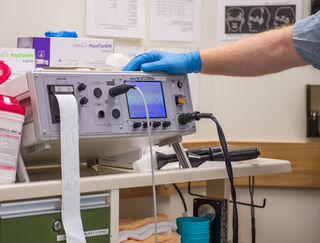Coronavirus Disease 2019
During COVID-19 Some Hospitals Stop ECT Treatment
For some patients, electroconvulsive therapy is literally lifesaving.
Posted April 18, 2020 Reviewed by Kaja Perina
In the early stages of the coronavirus response in the United States, the Centers for Medicare and Medicaid Services made a recommendation to doctors and hospitals to postpone elective procedures to preserve medical supplies and reduce the spread of the virus. Examples of such procedures include knee replacements, mammograms, dental work, and plastic surgery.

This week, a longtime psychotherapy patient of mine who receives electroconvulsive therapy (ECT) for management of her mood disorder informed me that some hospitals have ceased providing this treatment on the basis that it is "elective" and "non-essential." So, I took to Twitter to confirm. Sure enough, psychiatrists from around the country replied that their hospitals' ECT programs have been temporarily suspended on account of the coronavirus.
Electroconvulsive therapy, first discovered in the 1930s by the Italian psychiatrist Ugo Cerletti, is the single most effective treatment in all of psychiatry. It has application in the treatment of severe depression, acute suicidality, acute mania, catatonia, and some other treatment-resistant conditions. In acutely suicidal patients and those with lethal, or malignant, catatonia, the procedure is literally lifesaving. Some patients respond to no other treatment but ECT. Response rates frequently cited in major depression are between 70 and 90 percent. In catatonia, it is effective over 90 percent of the time. The number of suicides prevented by ECT since its discovery is inestimable.
Why, then, would a procedure like ECT be considered "elective" or "non-essential"? My best guess: the decision was made by hospital administrators with no real-world experience or understanding of ECT's lifesaving nature. As Chicago psychiatrist Chandan Khandai responded on Twitter, "Do these other hospitals want people to die or be hospitalized? If not, then the only reason they are blanket calling ECT 'elective,' in contravention of [American Psychiatric Association] policy, is [because] they simply don't care that #psychiatrymatters."
Psychiatry does matter. Let's hope that in short order our patients regain access to ECT. For many of them, their lives depend on it.


